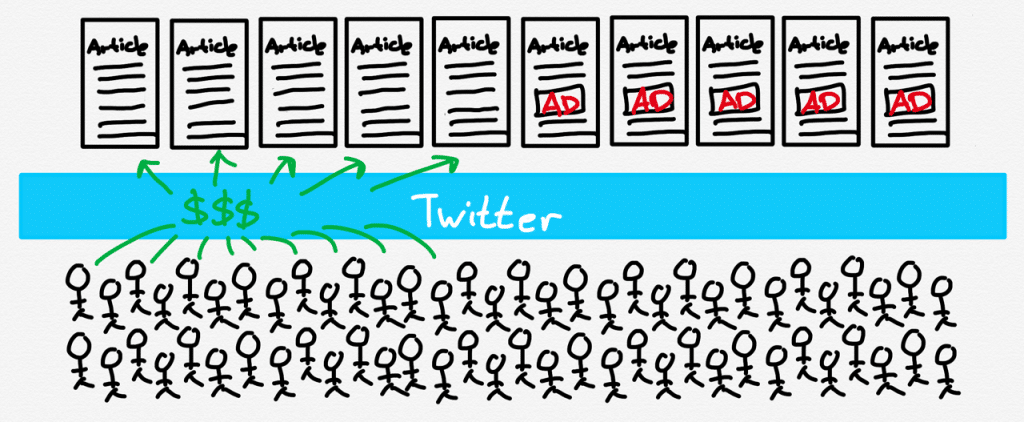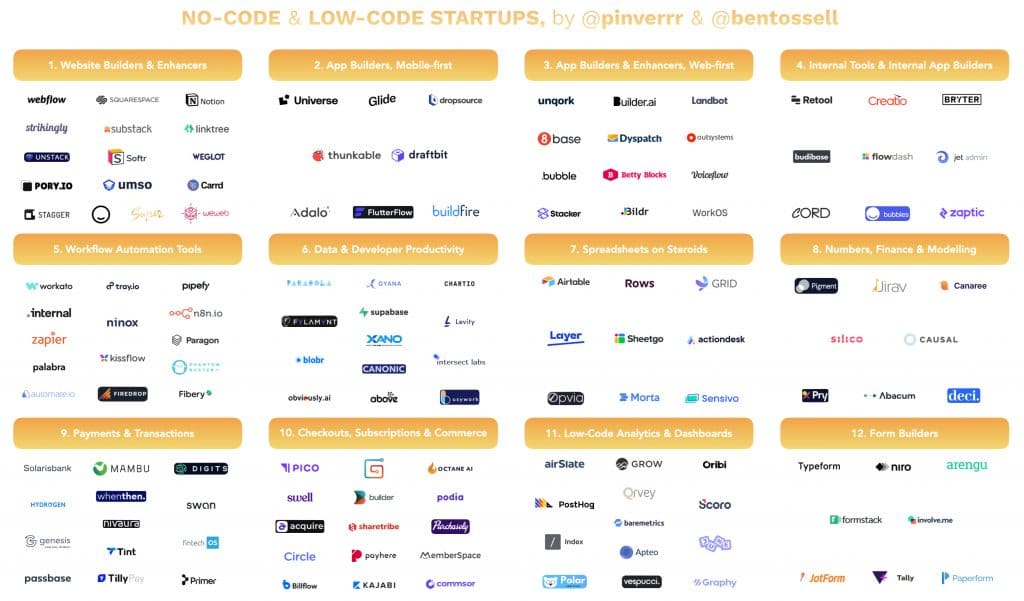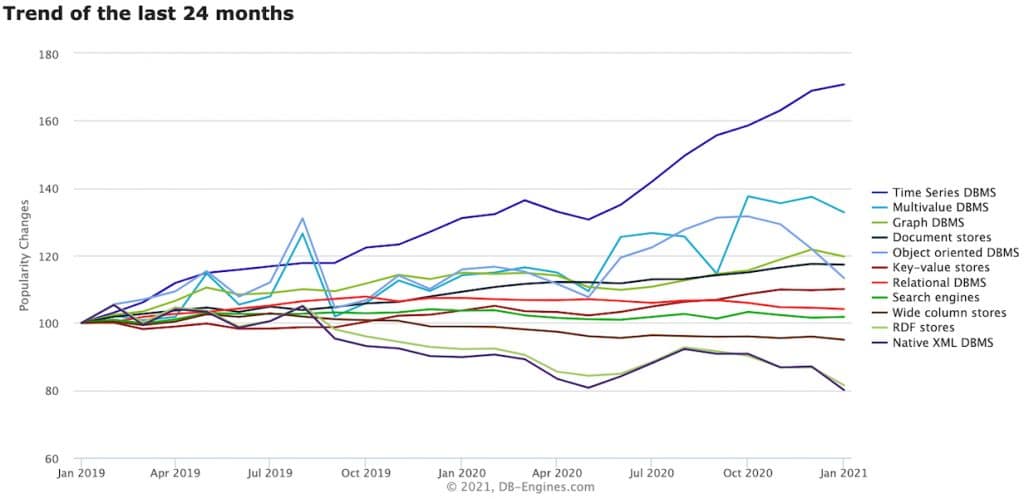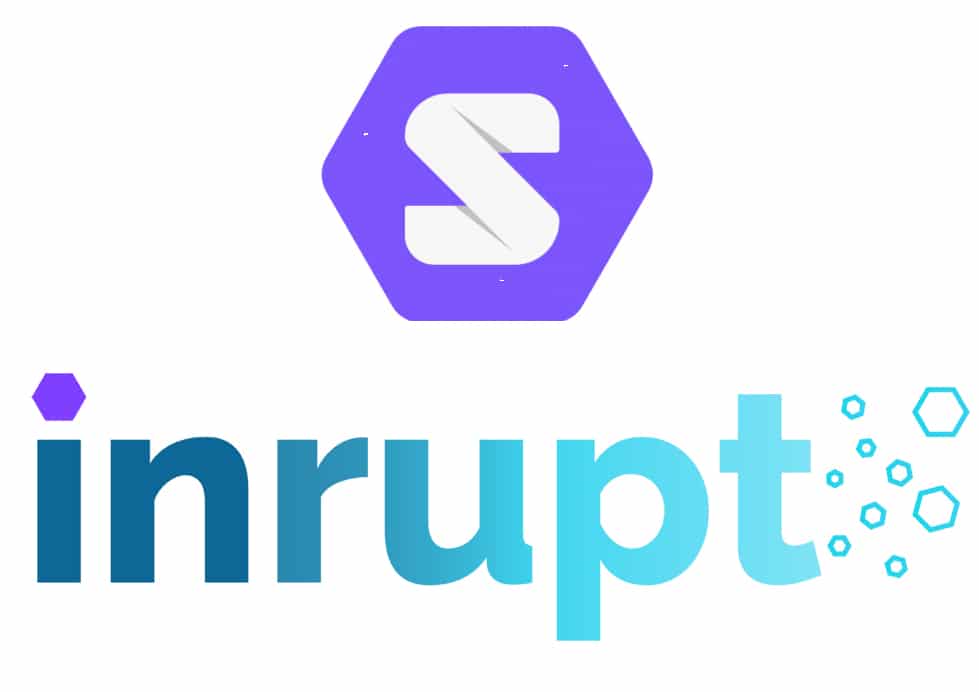If you missed last week’s issue where we introduced our new format, check it out here.
This week we suggest articles by Scott Brinker and Mike Bostock and have news from RWS, Snowflake, GraphDB, FileCloud, SNS, and Kofax. (3.7 min)
Always interested in hearing what you think!
Opinion / Analysis
Aggregation Theory applied to martech stacks
Scott Brinker has a clever article tying together his own thoughts on tech stacks and platforms, with Ben Thompson’s aggregation theory. His piece is not prescriptive, but suggestive. Looking at your own stack and operational workflows through this lens could surface useful insights on ways to improve both customer and employee experiences and operational efficiencies. If you’re a product manager, you (hopefully!) already understand quite a bit about the horizontal and vertical data flows, integrations, and relative control of other products in the ecosystem you live in, but I expect you’ll still find the article fruitful. The concept of aggregating time is especially rich.
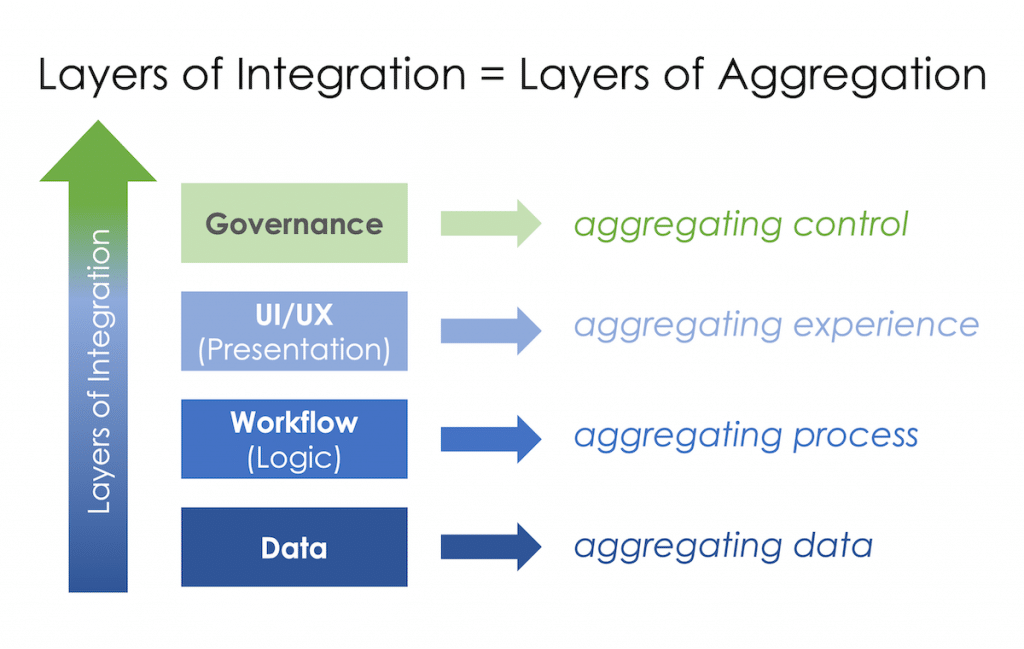
https://chiefmartec.com/2021/05/aggregation-theory-applied-martech-stacks-2/
JavaScript for data analysis
With the web opening new frontiers in collaboration, the web’s native language of JavaScript is the best choice for exploring data and communicating insights.
Mike Bostock makes the case that JavaScript’s ubiquity, and related collaboration and communication capabilities, provide a key advantage over Python, R, and Julia, today’s languages of choice for data analysis. Given that most organizations struggle with integrating data analysis into decision-making across business applications, it’s an interesting idea. Bostock is not naive and discusses what JavaScript still lacks, but it’s still his first choice for its “portability and convenience”.
https://towardsdatascience.com/javascript-for-data-analysis-2e8e7dbf63a7
Content technology news
RWS brings back Language Weaver brand
June 9, 2021 – RWS, provider of technology-enabled language, content management, and intellectual property services, announced the return of Language Weaver, a pioneering brand in automatic language translation. Language Weaver, which combines RWS’s linguistic expertise with SDL’s and Iconic’s technologies, will now represent RWS’s machine translation platform.
Founded in 2002 Language Weaver commercialized new approaches to automatic language translation based on machine learning. Acquired by SDL in 2010, the Language Weaver brand was retired in 2015 and renamed SDL Machine Translation. The technology, through continual investment, evolved from statistical machine translation to neural machine translation, capable of instantly translating content across 2,700 language combinations. RWS acquired SDL in 2020, and is now bringing back the Language Weaver brand.
Building machine translation (MT) models has traditionally required specialists. The Language Weaver platform allows anyone to provide real-time feedback on translations and fine-tune generic language models. Behind the scenes the platform also constantly looks for ways to improve the quality of translations. The technology benefits any business or industry dealing with large volumes of multilingual content. Language Weaver can be integrated with any software or platform, from Microsoft Office, to chatbots and eCommerce platforms.
https://www.rws.com/language-weaver/
Snowflake adds features
June 8, 2021 – Snowflake unveiled new product innovations for the Data Cloud, including data programmability, global data governance, and platform optimizations.
Data programmability:
- Snowpark. With initial support for Java and Scala, Snowflake’s developer experience, Snowpark, allows data engineers, data scientists, and developers to build using their preferred language and execute these within Snowflake.
- Java UDFs. With Java user-defined-functions (UDFs), customers can bring their custom code and business logic to Snowflake.
- Unstructured data. Snowflake’s unstructured data support enables customers to store, govern, process, and share file data alongside their structured and semi-structured data.
- SQL API. The Snowflake SQL API enables applications to call Snowflake directly through a REST API.
Global governance:
- Classification. Snowflake’s classification capability automatically detects personally identifiable information (PII) in a given table and leverages the tagging framework to annotate the data.
- Anonymized views. This can be used to protect privacy and identity in a dataset.
Platform:
- Improved Storage Economics. Better compression, and reduced storage costs.
- Improved Support for Interactive Experiences. Updates released for high volume and low latency workload requirements improve query throughput on a single compute cluster.
- Usage Dashboard. New usage dashboard helps customers better understand usage and costs across the platform.
GraphDB 9.8 brings text mining and Kafka connectivity
June 2, 2021 – Ontotext announced the realize of GraphDB 9.8, which offers text mining integration, notifications over Kafka, Helm charts, and performance improvements. The text mining plugin comes with out-of-the-box support for text analytic services such as Ontotext’s Tag API, GATE Cloud, and spaCy server, as well as an expressive mapping language, to register new services without coding. The extracted text annotations can be manipulated with SPARQL and either returned to the caller for further processing or stored directly into the repository where they will enrich the existing knowledge graph. This functionality covers a number of use-cases that rely on both RDF and text analytics.
The Kafka connector provides a means to synchronize changes to the RDF model to any downstream system via the Apache Kafka framework. Each Kafka connector instance will stay automatically up-to-date with the GraphDB repository data. The implementation is built on the same framework as the existing Elasticsearch, Solr and Lucene connectors and allows for precise mapping from RDF to JSON, such as defining fields based on property chains, nested document support as well as advanced filtering by type, literal language or a complex expression. GraphDB 9.8 comes with standard Helm charts and instructions that can help you get started with GraphDB Enterprise Edition on Kubernetes.
https://www.ontotext.com/company/news/graphdb-9-8/
More recent news…
FileCloud releases FileCloud 21.1
The latest version of the cloud-agnostic enterprise file sync, sharing and data governance platform, is faster, with increased efficiency and ability to handle higher loads. The system software applications have been upgraded for optimal performance on Apache, PHP, MongoDB and SOLR. The customer experience has also been enhanced, with a new, streamlined user interface along with the debut of a log-in wizard…
https://gilbane.com/2021/06/filecloud-releases-filecloud-21-1/
SNS unveils ShareBrowser plugin for DaVinci Resolve
Studio Network Solutions (SNS), provider of workflow storage servers for professional media teams, announced that their ShareBrowser media asset management (MAM) software is now available as a workflow integration plugin for DaVinci Resolve Studio video editing software by Blackmagic Design…
https://gilbane.com/2021/06/sns-unveils-sharebrowser-plugin-for-davinci-resolve/
Kofax updates Intelligent Automation Platform
Kofax TotalAgility, the workflow orchestration engine within the company’s Intelligent Automation Platform, has been enhanced with 50 new low-code, document intelligence, process orchestration and connected systems capabilities…
https://gilbane.com/2021/06/kofax-updates-intelligent-automation-platform/
The Gilbane Advisor is curated by Frank Gilbane for content technology, computing, and digital experience professionals. The focus is on strategic technologies. We publish recommended articles and content technology news weekly. We do not sell or share personal data.
Subscribe | Feed | View online | Editorial policy | Privacy policy
